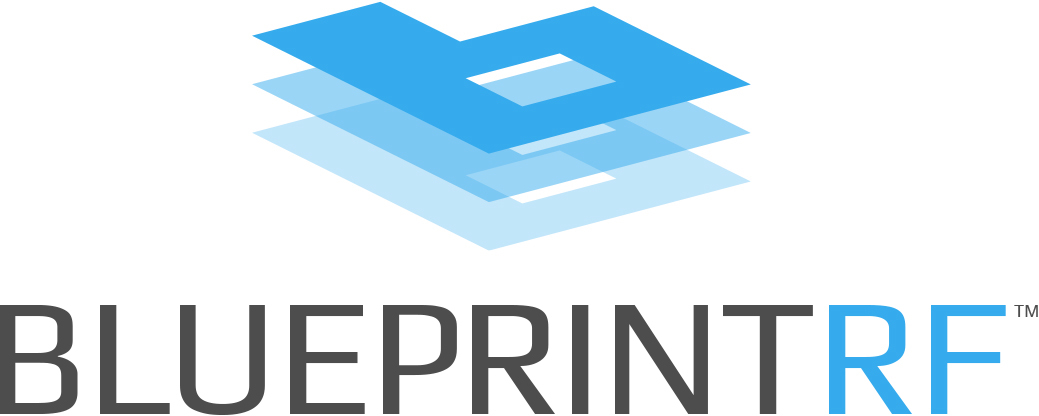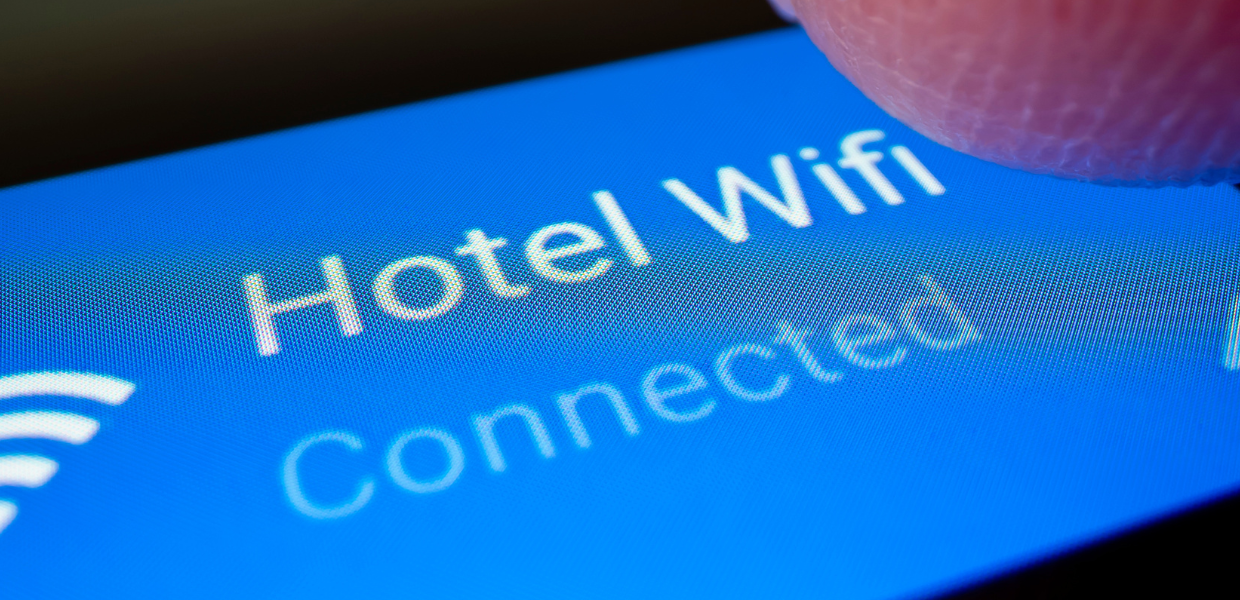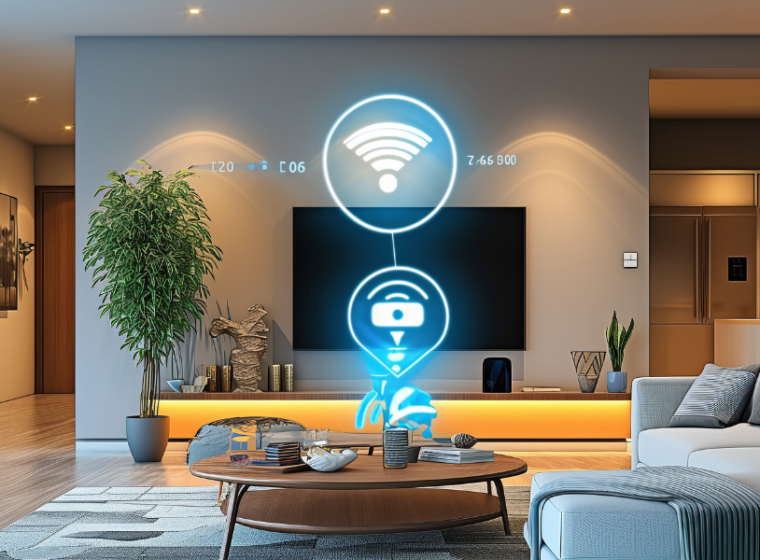Harness the Next-Generation WiFi to Power Innovative Hotel Technology
The digital landscape is accelerating at an unprecedented pace, and hospitality finds itself at the forefront of this transformation. As we look ahead, future WiFi technology promises to advance guest experiences and operational efficiencies in ways we’ve never imagined. Buckle up, because the journey towards lightning-fast, immersive, and intelligent WiFi is just beginning.
The Need for Speed: WiFi 7 and Beyond
Remember the days when a stable 5 Mbps connection was all you needed to keep guests happy? Today, guests expect seamless, high-speed internet that can handle everything from streaming 4K videos to participating in virtual meetings without a hitch. Enter WiFi 7, the next-generation WiFi standard that promises to revolutionize connectivity in the hospitality sector.
WiFi 7, also known as IEEE 802.11be Extremely High Throughput (EHT), is designed to deliver speeds up to 46 Gbps—4.8 times faster than WiFi 6 and 13 times faster than WiFi 5. This leap in speed is not just about faster downloads; it’s about enabling a new era of digital experiences. Imagine your guests enjoying lag-free virtual reality tours of local attractions or participating in ultra-smooth, real-time gaming sessions right from their hotel rooms. With WiFi 7, these experiences are not just possible—they’re expected.
Full Campus Solutions: Seamless Connectivity Everywhere
In the modern hospitality landscape, connectivity isn’t confined to guest rooms. Guests expect robust WiFi coverage across the entire property, from the lobby to the poolside cabanas. Full campus solutions are becoming the norm, helping to ensure every corner of your hotel offers the same high-quality internet experience.
This trend is driven by the rapid adoption of WiFi 6E and WiFi 7, which leverage the additional spectrum in the 6GHz band to provide more bandwidth and reduce congestion. These technologies are particularly effective in high-density environments, making them ideal for large hotels and resorts. By deploying complete WiFi solutions for multi-dwelling units, hosts can provide guests with connectivity no matter where they are on the property, enhancing their overall experience and satisfaction.

Mesh Networks: The Backbone of Modern Hospitality WiFi
Mesh networks are another game-changer in the hospitality industry. Unlike traditional WiFi setups that rely on a single router, mesh networks use multiple nodes to create a seamless web of connectivity. This approach eliminates dead zones and helps ensure consistent, high-speed internet access throughout the property.
For hotels, this means fewer complaints about spotty WiFi and more opportunities to impress guests with flawless connectivity. Mesh networks are particularly beneficial in sprawling properties where a single router simply can’t cover the entire area. By strategically placing nodes around the property, hotels can create a robust and reliable network that meets the high expectations of today’s tech-savvy travelers.
Better Expectations for Speed and Bandwidth
As the demand for high-speed internet continues to grow, so do the expectations for speed and bandwidth. According to recent predictions, 10 Gbps speeds will soon become commonplace, driven by the expansion of fiber broadband deployments in both developed and developing markets. This shift will necessitate upgrades to home and hotel WiFi networks to pass on the increased bandwidth to devices, further driving the adoption of WiFi 6E and WiFi 7.
For the hospitality industry, this means staying ahead of the curve by investing in the latest WiFi technologies. Hotels that can offer ultra-fast, reliable internet will not only be capable of meeting guest expectations but exceeding them, setting a new standard for connectivity in the industry.
The Rise of WiFi-Powered IoT and Smart Spaces
The Internet of Things (IoT) is rapidly transforming the hospitality industry, and WiFi is at the heart of this revolution. As more devices become connected, hotels are leveraging WiFi-powered IoT solutions to enhance guest experiences, streamline operations, and optimize energy efficiency.
From smart room controls that adjust lighting and temperature based on occupancy to automated check-in and keyless entry systems, the possibilities are endless. Additionally, the integration of WiFi with building automation systems enables hotels to monitor and control various aspects of their properties, such as HVAC, lighting, and security, resulting in significant cost savings and improved sustainability.
Convergence with 5G and Private Networks
While WiFi continues to dominate indoor connectivity, the future will see a convergence with 5G and private networks. Network executives are deploying WiFi and cellular technologies in tandem, with WiFi 6E/7 for indoor, on-campus, and fixed network situations, and 5G/cellular for outdoor, off-campus, and mobile environments.
This convergence will enable seamless access to private and public 5G services over WiFi, opening up new possibilities for enhanced mobility, low-latency applications, and improved network management. As the lines between WiFi and cellular networks blur, hotels will be able to offer guests a truly unified connectivity experience.

How to Get Ahead of Future WiFi Standards
As the hospitality industry braces for the next wave of WiFi advancements, staying ahead of the curve is crucial for maintaining a competitive edge and helping ensure guest satisfaction. Here are actionable insights and best practices to help hospitality providers prepare for the future of WiFi:
- Invest in future-proof infrastructure: Upgrade to WiFi 6E or WiFi 7 to take advantage of the additional spectrum in the 6GHz band, which offers more bandwidth and reduces congestion. This will help ensure your network can handle the increasing demand for high-speed internet and data-intensive applications.
- Adopt mesh networks: Use mesh networks to help eliminate dead zones and provide consistent, high-speed internet access throughout the property. This approach is particularly beneficial for large or sprawling properties where a single router cannot cover the entire area effectively.
- Leverage IoT for enhanced guest experiences: Integrate IoT devices to offer personalized and automated services. Smart room controls, connected thermostats, and IoT-enabled security systems can significantly enhance guest satisfaction and operational efficiency.
- Prepare for 5G integration: Invest in infrastructure that supports the convergence of WiFi and 5G technologies. This will help enable seamless connectivity for guests, whether they are indoors or outdoors, and allow for innovative applications like augmented reality and virtual reality experiences.
- Focus on cybersecurity: With the proliferation of IoT devices, the risk of cyberattacks increases. Deploy robust security measures to effectively protect your network and data. This includes secure onboarding processes for IoT devices, regular security audits, and the use of advanced encryption protocols.
- Optimize bandwidth management: Use advanced bandwidth management tools to prioritize critical applications and help ensure a smooth experience for all users. This is especially important during peak times when network demand is highest.
- Stay informed about regulatory changes: Keep up-to-date with evolving regulatory standards and requirements for in-building wireless connectivity. Compliance with local authorities and emergency communication requirements is essential for maintaining operational integrity and guest safety.
- Utilize data analytics: Leverage data collected from connected devices to gain insights into guest preferences and behavior. Supported by guest WiFi analytics, this information can be used to tailor services, improve operational efficiency, and boost overall guest satisfaction.
The future of WiFi technology in the hospitality industry is dynamic and full of potential. By investing in the latest technologies and adopting best practices, hotels can not only meet but exceed guest expectations, providing unparalleled connectivity experiences.
How Blueprint RF Supports Future WiFi Technology
As you prepare for this exciting future of possibilities, consider partnering with experts who can guide you and your hospitality property through the complexities of future WiFi standards. Blueprint RF is here to help you navigate the turbulent future of WiFi technology, helping to ensure your property is ready for the next generation of wireless connectivity with the support of our comprehensive, property-wide managed network solutions. To learn more about how Blueprint RF supports hospitality providers through the evolution of future WiFi technology, contact us today.











